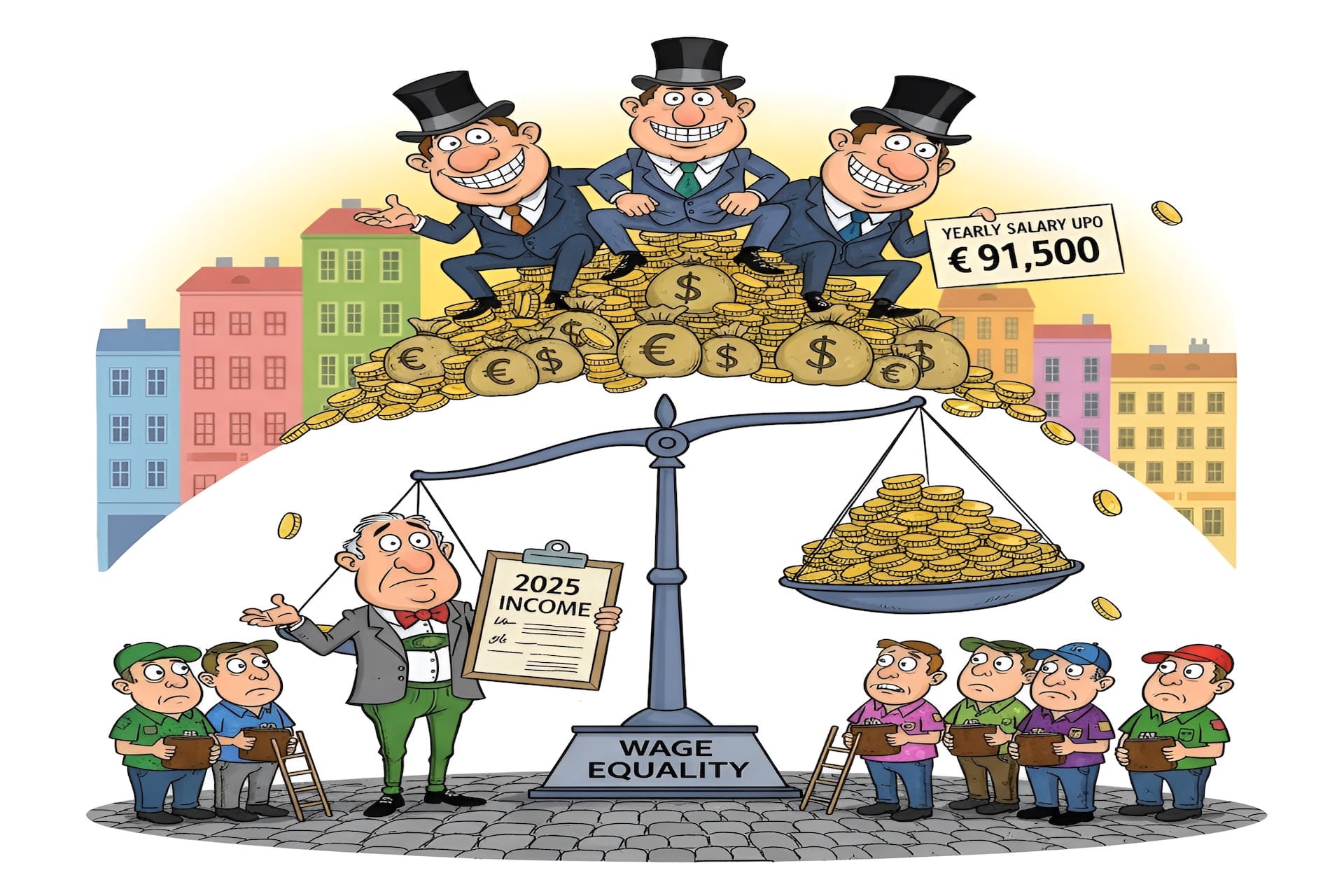Austrian Financiers Top the Charts: Up to €91,500 in 2025 — What It Means for Wage Equality
Discover Austria salaries 2025 — financiers earn up to €91,500. Learn how wage gaps with retail & e-commerce shape Austria’s job market.
AlpeAnony

Austria’s financial sector is commanding attention in 2025: reports show that top financiers can now earn up to €91,500 per year. This makes them among the highest-paid professionals in the country and highlights just how lucrative finance has become in Austria.
But this new peak raises deeper questions: What does Austria salary 2025 look like across other sectors? Is this level of income fair or sustainable? And how does it compare with wages in retail and e-commerce?
From my perspective, seeing financiers earn such high numbers is impressive—but it also intensifies the urgency to examine wage inequality, labor policy, and how all Austrians can share in prosperity.
Why Are Finance Salaries So High?
There are several reasons financiers are reaching these top salary levels:
- Skill and knowledge requirements: Finance roles often demand expertise in risk management, investment analysis, compliance, and financial modeling.
- High responsibility and accountability: Decisions in banking or asset management can carry large financial consequences.
- Revenue generation: In many companies, finance, investment, or trading sectors contribute directly to profit, which allows higher compensation.
- Market competition: To attract and retain top talent, firms must offer premium pay, especially in a competitive European market.
- Cost of living and market standards: In major cities like Vienna, high living costs push salaries upward.
These are valid drivers, but when finance roles command such high earnings relative to many essential professions, imbalance emerges.
Placing It in the Broader Wage Landscape
To understand the full picture of Austria salaries 2025, we must compare finance with other sectors. One useful comparison is to the trade sector—especially between retail and e-commerce roles.
Check out our in-depth discussion here: Austria Salaries 2025: Retail vs E-Commerce Wage Gap.
In that analysis, you’ll see:
- Retail roles (sales assistants, store staff) tend to have modest salaries.
- E-commerce and digital roles often earn significantly more, depending on skill and specialization.
- The wage gap is growing, showing that digital fluency and specialized knowledge are increasingly rewarded.
When finance salaries reach €91,500, the gap with average retail or service sectors becomes stark—and that raises questions of fairness, mobility, and social cohesion.
The Risks of Extreme Wage Gaps
High salaries in finance are not inherently bad. But when they outpace wages in essential sectors by too large a margin, several risks arise:
- Social inequality & resentment
When large swaths of the workforce feel left behind, social tension and political dissatisfaction grow. - Brain drain from other sectors
Talented individuals might abandon fields like education, health, or public services for higher pay in finance, weakening those crucial sectors. - Economic distortion
Overcompensation in finance may inflate costs (e.g. real estate, services) disproportionately. - Sustainability concerns
If salary growth outpaces productivity or revenue growth, firms may struggle to maintain those wages long term.
From where I stand, Austria should celebrate high-performing sectors—but not at the cost of neglecting the broader workforce.
What Can Austria Do?
To ensure that the rising finance salaries benefit society at large, Austria should consider:
- Progressive taxation and redistribution: High-income earners should contribute proportionately more to public services and infrastructure.
- Strengthening pay standards in lower-paid sectors: Improve wages and benefits for retail, health care, education, and essential services.
- Encouraging mobility and retraining: Provide pathways for workers to upgrade skills and transition to higher-paying roles.
- Promoting wage transparency: Companies should disclose pay ranges to reduce hidden wage inequities.
- Supporting balanced regional development: Prevent salary extremes in Vienna from leaving rural areas behind.
If Austrian policymaking embraces these measures, then Austria salary 2025 won’t just reflect success in finance but a fair, balanced economy.
Conclusion: Celebrating Success, Demanding Fairness
The fact that financiers in Austria can now earn up to €91,500 is a sign that the country’s economy supports high-level talent. It confirms Austria’s competitiveness in the financial arena.
Yet this milestone also challenges us. We must ask: Does the rest of Austria keep pace? Are wage policies, labor protections, and mobility tools strong enough to ensure all citizens benefit?
As an Austrian lover and someone deeply invested in justice, I see this as an opportunity—not just to applaud finance success but to push for a wage landscape where Austria salaries 2025 reflect equity and shared prosperity.
